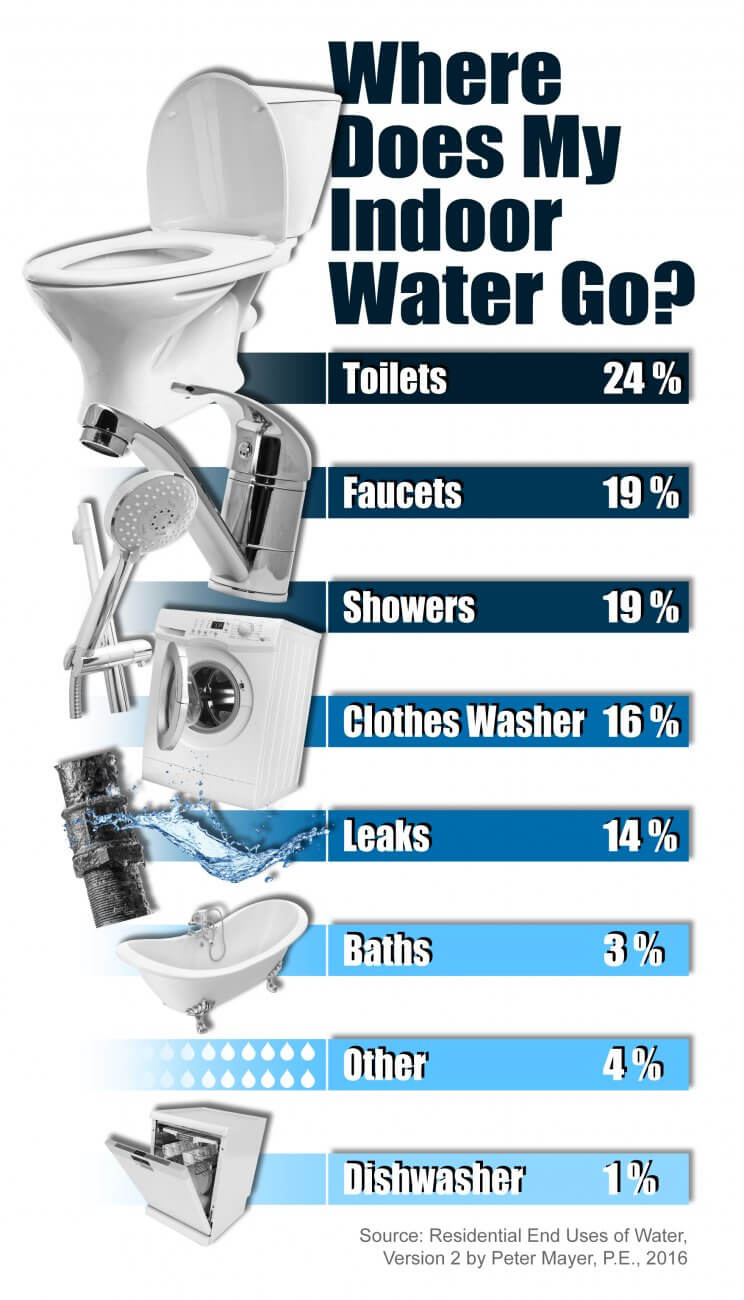Wastewater averaging  is how the City determines how much you will be charged for wastewater (or sewer) for the next year. Since the City does not have meters on the wastewater lines leaving your property, the utility averages three winter billing months water use (November-February) to determine what your home or business will be billed. It is assumed that your water use is the lowest at this time of the year because very little or no water is being used outdoors – – it is all indoor use. The average water use of these three months is what you are charged for wastewater for the rest of the year.
is how the City determines how much you will be charged for wastewater (or sewer) for the next year. Since the City does not have meters on the wastewater lines leaving your property, the utility averages three winter billing months water use (November-February) to determine what your home or business will be billed. It is assumed that your water use is the lowest at this time of the year because very little or no water is being used outdoors – – it is all indoor use. The average water use of these three months is what you are charged for wastewater for the rest of the year.
To conserve water and save money on your water bills the rest of the year, it’s recommended that automatic irrigation systems are turned off from November through March. If your yard needs to be watered, simply run it manually once and then turn it off once the cycle has run.
Landscape typically does not need supplemental water during this time as rainfall usually supplies enough water. Cooler temperatures and shorter daylight hours contribute to lower water needs. Turfgrasses also go dormant during winter to prepare for the springtime growing season. Hand-watering plants is recommended instead of running the irrigation system. Hand-watering provides a more thorough soaking and only waters the plants that need the extra attention.
Read the article, Winterizing Your Property, to find other ways to save water this winter.
Read the blog post Winter Ready Water System to learn when and how to protect pipes at your property.
Check out the chart to the right to see what generally uses the most water inside homes and how you can reduce your use. The City offers a variety of conservation rebates throughout the year on many efficient fixtures.
If you have a question regarding your water bill or wastewater averaging, please contact the Utility Billing office at 512-218-5460.


